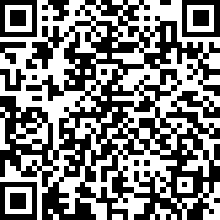Hour of Code: The Hour of Code is a one-hour introduction to computer science, designed to demystify code and show that anybody can learn the basics.
As a class today, we attempted (and some) completed the Star Wars Hour of Code. Hour of Code was a weird experience to understand as you leveled up because it got more complicated. I don't play video games and have never really been the gamer type, so this type of coding is not something that really intrigued me. Not saying it was not interesting, just saying I got bored with it fairly quickly.
Tuesday, November 17, 2015
Friday, November 13, 2015
Thursday, November 12, 2015
"New Media"
Media is a connection between people worldwide. Via satellite, web, phones, iPad, messenger, and many more ways to connect, media gives us all something that makes our lives easier and "faster" that would not be possible without technology and constant evolution. Everything we do daily is some form of connection and use of media with others around us. Verbal communication, non-verbal communication, video gaming, surfing the web, talking on the phone, texting, and even singing along to songs is connecting us through our great use of different media outlets. These things mentioned help and hurt the world because they all have unavoidable pros and cons. YouTube and Google (probably the largest media swingers worldwide) play a major role in how people today view, perceive, accept, and go about living in society. We live in a world where everything is recorded and replayed. Replayed is recognition of everything not once but over again so watching what one says and does at all times is vital.
Tuesday, November 10, 2015
The Real Cyborgs and QR Codes
| The London Telegraph - The Real Cyborgs |
Tuesday, November 3, 2015
Artifacts from the Future: Problems with Time Travel
In the book "a sound of Thunder" by Ray Bradbury, a time-traveler accidentally stepped on a butterfly in the past. That step on changed the food chain multiple times over billions of years, and when the traveler returned to the present, the entire world was changed drastically. This was known as the Butterfly effect. After watching the scientific film clip "Through the Wormhole" many pros and cons about time travel were brought up. The question of is time travel even possible due to the laws of life was the biggest question that caught my attention. I do not think it is possible AT ALL. Although time traveling into the future or past would be cool, it is not possible and I predict that it will not ever be done.
Monday, November 2, 2015
"The Final Cut" Film Reflection
Looking back after watching the film "The Final Cut", one issue in the film that stood out to me was the fact that something like that could really be happening in today's world, and most of us in the human population would never know. There could very well be a chip in someone's or all of our heads watching our lives every second. I have always believed that if the government and whoever else needed information they could and do have access to it via our phones, televisions, social medias like snapchat, bank accounts, and other ways. Just like the device "Alexis" can record daily conversations and has access to one's photos and information, ( without knowing) a device like Alexis can also be programmed to have a mini camera to spy or see anything that it wants to without us ever knowing.
Virtual Bodies and Flickering Signifiers by N. Katherine Hayle
In “Virtual Bodies and Flickering Signifiers”, N. Katherine Hayle's was mainly discussing the transition from the concept of the “absent/present” to the “pattern/randomness” under the era of the information and cyborg age. The shift itself may generate a debate in the embodiment theory. Generally when talking about embodiment theory, the first thing that comes to mind is the coupling of cognition and the human body. Here the body is no longer a shell purely executing the instructions from brain. Instead, it plays an essential role actively determining the formation of cognition. However, with the rapid growth of technology, we have not needed physical forms nearly as much. Hayle's makes a very interesting analogy between the human body and traditional printing media, such as books and newspapers. She says “Like the human body, the book is a form of information transmission and storage that incorporates its encodings in a durable material substrate.”, once the relation between texts and media is built, these two separate things would coexist and can hardly be changed, this can also be applied to the human body. The link between the media and digital information is not that closely tied. As for the information like digital text, although it can be exported into hard drives for permanent storage, you will find that there are no fixed correspondences between the media that are used for visualization, like monitors, and the content. For example, when you are reading an e-book, once you turn to another page, the previous one is no longer there. In other words, what information technologies create is just a temporary mapping relationship. Unlike digital platforms, the contents of the cognition are supplied by the media when dealing with traditional media and human bodies.
Do you know what the embodiment theory means?
Does her theory initiate a new experience of embodiment or completely deny it?
Do you know what the embodiment theory means?
Does her theory initiate a new experience of embodiment or completely deny it?
Subscribe to:
Comments (Atom)
